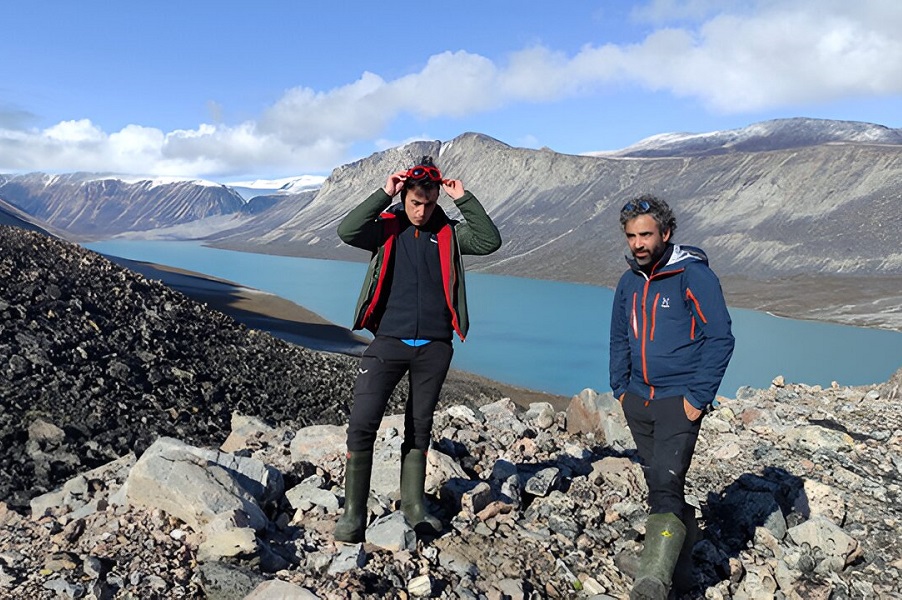11 Dec 2024

Tired Earth
By The Editorial Board

Climate change is accelerating the melting of ice in Greenland at an alarming rate, with serious implications not only for the Arctic, but also for the global climate, including Europe. According to a study led by researchers at the University of Barcelona, extreme melting episodes—periods when large areas of snow and ice melt rapidly—have been about twice as frequent during summers in recent decades compared to the period 1950–1990.
The paper, published in the Journal of Climate, shows that the last decade has seen peak years of extreme melting in Greenland. For example, during the summer of 2012, 610 gigatons of ice (the equivalent of 244 million Olympic-sized swimming pools) melted, and in 2019, 560 gigatons (224 million Olympic-sized swimming pools) melted.
The study was carried out by the Antarctica, Arctic and Alpine (ANTALP) research group of the UB's Department of Geography. It was led by lecturers and researchers from the Faculty of Geography and History Josep Bonsoms and Marc Oliva, Juan Ignacio López-Moreno, a researcher at the Pyrenean Institute of Ecology (IPE-CSIC), and Xavier Fettweis, from the University of Liège (Belgium).
Development of melting ice in Greenland
The study has analyzed extreme melt episodes in Greenland between 1950 and 2022. The results show meltwater loss figures that, on average, have reached about 300 gigatons per year—the equivalent of a volume of about 48 million Olympic-sized swimming pools per year—between 1980 and 2010.
In addition, about 40% of the melting episodes have been extreme in recent decades. This figure rises to 50% in the coldest areas in the north and northwest of the island.
"This loss of surface glacial melt must be added to that of other dynamic processes, such as the detachment of icebergs directly into the sea and the flow of glaciers into the ocean, both of which are accelerated by increased melting," add the UB researchers.
The risk of large ice blocks breaking off increases
Ice melting phenomena have been directly linked to global warming, with recent studies showing that the Arctic is warming at four times the global average rate due to increased greenhouse gases. The authors of the study explain that "increased melting is closely related to episodes of extreme warmth caused by more frequent, warmer and wetter anticyclonic air masses from more northern latitudes."
"These atmospheric patterns keep the air over Greenland stagnant during the summer, increase solar radiation and reduce the albedo (sunlight reflectance) of snow and ice, which further accelerates warming and melting," they add.
According to UB researchers, melting is occurring in higher areas of the ice cap, where no ice melt was previously observed between 1950 and 1990. This has created cracks and other structural changes in the ice sheet, and increases the risk of large blocks of ice breaking off into the ocean.
"International climate reports anticipate a significant increase in temperatures in the polar regions, which would accelerate the trend we have observed in this study," the researchers add.
Future predictions and impacts in Europe
Greenland's melting ice has global consequences, as it is a major contributor to sea level rise and it also affects atmospheric circulation patterns. According to the researchers, these alterations may also influence Europe's climate.
"These changes in temperature and precipitation patterns could impact on socio-economic activities, ecosystems and may contribute to increased climate extremes in nearby regions of the North Atlantic," the experts note.
In addition, the researchers also warn that projected climate scenarios indicate an increase in these episodes. "This highlights the urgency of reducing greenhouse gas emissions to mitigate the impacts of climate change in the coming decades," they conclude.
Source : phys.org
Comment